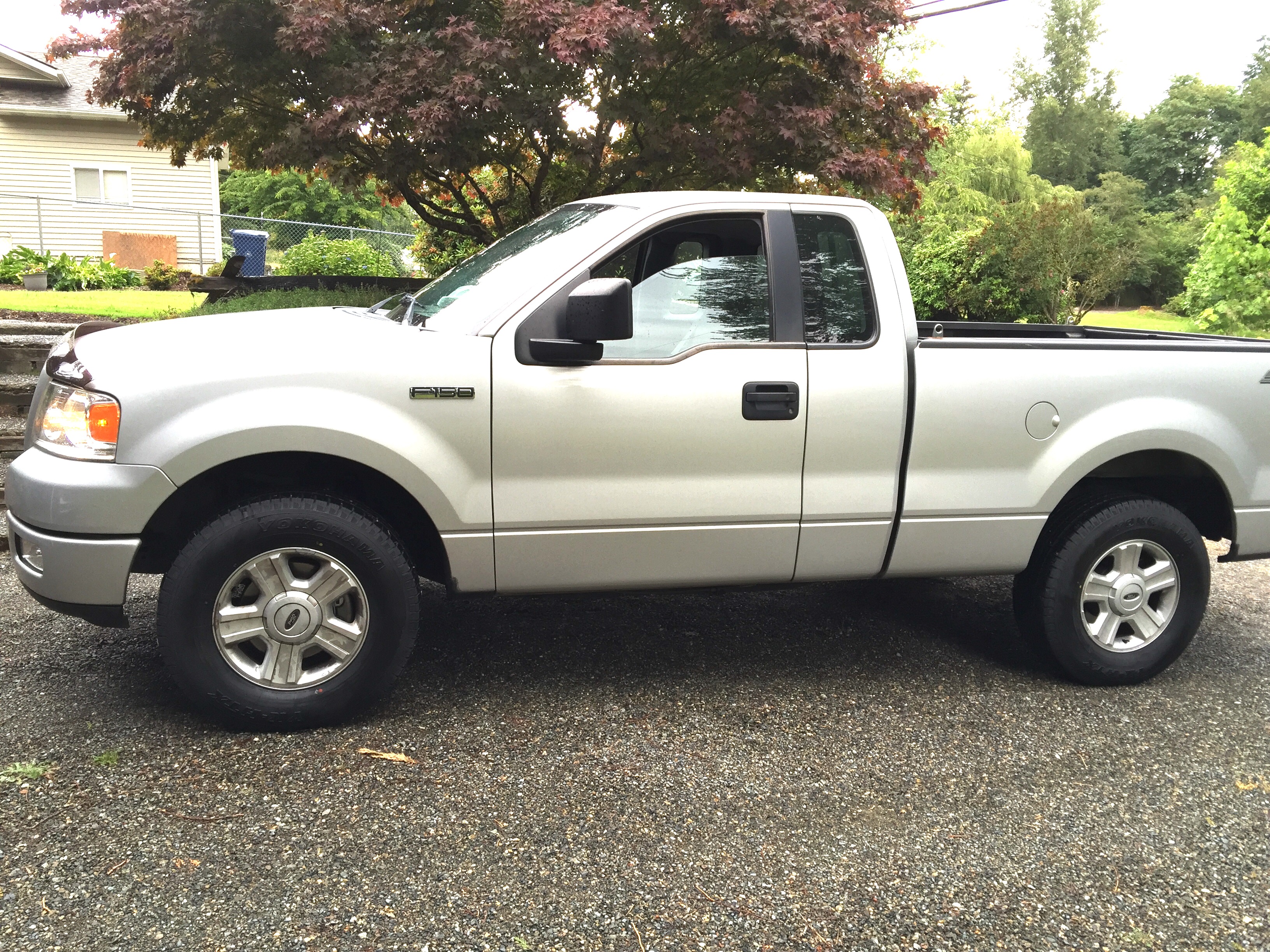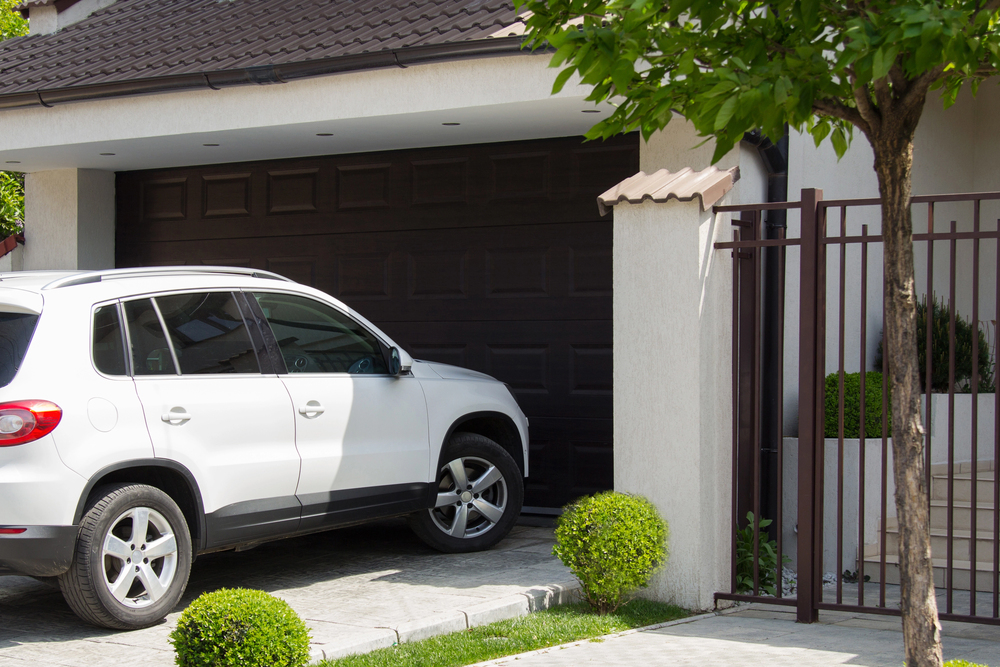Is Downsizing to One Car in Retirement Right for You? The Complete 2025 Guide to Saving $10,000+ Annually

Yes, Downsizing to One Car Can Save Most Retirees $8,000-$12,000 Annually
According to AAA's 2024 Your Driving Costs study, the average annual cost of owning and operating a new vehicle is $12,297 or $1,025 per month. For retirees eliminating a second vehicle, realistic annual savings typically range from $8,000 to $12,000 when excluding depreciation and financing costs that may not apply to paid-off vehicles.
If you prefer, you can listen to a "podcast style" version of this blog post:
The decision to downsize from two cars to one represents one of the most impactful cost-cutting strategies available to retirees, potentially equivalent to having an additional $200,000-$300,000 in retirement savings using the 4% withdrawal rule.
Current Vehicle Ownership Costs: 2024 AAA Data Breakdown
Annual Cost Components Per Vehicle (2024)
| Expense Category | Annual Cost | Monthly Cost | Notes |
|---|---|---|---|
| Depreciation | $4,680 | $390 | May not apply to older, paid-off vehicles |
| Financing | $1,332 | $111 | Only applies if still making payments |
| Insurance | $1,715 | $143 | Applies to all vehicles, varies by age and location |
| Fuel | $1,839 | $153 | Based on 15,000 miles annually at 14.9¢/mile |
| Maintenance/Repair/Tires | $1,519 | $127 | Based on 15,000 miles annually at 10.13¢/mile |
| Registration/Taxes | $815 | $68 | Varies significantly by state |
| Total Average Cost | $12,297 | $1,025 | Complete AAA calculation |
Realistic Retirement Savings from Eliminating One Car
For retirees with paid-off vehicles, the most relevant savings categories include:
- Insurance: $1,715 annually
- Fuel: $1,200-$2,500 (depending on usage)
- Maintenance/Repair: $1,000-$2,000 (higher for older vehicles)
- Registration/Taxes: $300-$800 (varies by state)
- Parking/Storage: $0-$2,400 (if applicable)
Total realistic savings: $4,200-$9,500 annually for most retirees, with potential for $10,000+ if eliminating a high-maintenance or frequently driven second vehicle.
The Financial Impact: Retirement Savings Equivalent
According to financial experts, every $10,000 in reduced annual expenses is equivalent to having approximately $250,000 more in retirement savings using the 25x rule (4% withdrawal rate). This means eliminating a second car could provide the same financial benefit as having an additional $200,000-$300,000 in your retirement portfolio.

Environmental Benefits: Reducing Your Carbon Footprint
Beyond financial savings, downsizing to one car provides significant environmental benefits. According to the EPA, transportation accounts for 28% of total U.S. greenhouse gas emissions as of 2022, making it the largest contributor to America's carbon footprint.
Environmental Impact of One-Car Households
- Typical passenger vehicle emissions: 4.6 metric tons of CO₂ annually
- Manufacturing impact reduction: Eliminates resource consumption for second vehicle production
- Infrastructure benefits: Reduces demand for parking spaces and road maintenance
- Trip efficiency: Encourages consolidated errands and more efficient travel planning
My Personal Experience: Why We Downsized from Two Cars to One
After relocating to a snow-prone area in retirement, my wife and I made the strategic decision to sell both our vehicles - a high-mileage Ford F-150 approaching 140,000 miles and a small Honda Civic - and purchase a single all-wheel-drive Honda CR-V.

Primary Motivating Factors
Vehicle condition concerns: Our F-150 was approaching the point where maintenance costs would increase significantly while reliability decreased.
Seasonal limitations: The two-wheel-drive truck became essentially unusable during 3-4 months of winter weather.
Space optimization: Our small two-car garage couldn't accommodate both vehicles plus the workshop space I needed for mountain bike maintenance and other projects.
Lifestyle alignment: As retirees, we realized one vehicle sat unused 75% of the time while the other handled most of our transportation needs.
After 40,000 trouble-free miles with our Honda CR-V, the decision has proven financially and practically sound.
Decision Framework: Is One Car Right for Your Retirement?
Critical Assessment Questions
How often do you need to be in different places simultaneously? If you and your spouse frequently have conflicting schedules requiring separate transportation, maintaining two vehicles may be necessary.
What alternative transportation options exist in your area? Research public transit, ride-sharing availability, senior transportation programs, and walkable amenities within your community.
What's your total annual cost for maintaining the second vehicle? Calculate insurance, maintenance, fuel, and registration costs for your least-used vehicle.
Do either vehicles serve specialized purposes? Consider whether you need truck capability for hauling, off-road access for hobbies, or specific vehicle features that can't be replaced by a single vehicle.
How would you handle emergencies if your one car is unavailable? Develop backup transportation plans for vehicle repairs, medical emergencies, or other situations.
Comprehensive Pros and Cons Analysis
Advantages of One-Car Retirement Living
Significant cost reduction: Annual savings of $4,000-$12,000+ depending on vehicle type and usage patterns.
Simplified maintenance: Single vehicle maintenance schedule, reduced mental load of tracking multiple service intervals.
Space liberation: More garage space for storage, workshops, or hobbies.
Environmental responsibility: Meaningful reduction in carbon footprint and resource consumption.
Enhanced partnership coordination: Encourages joint activities and better communication about schedules.
Reduced decision fatigue: Eliminates daily choices about which vehicle to use for different trips.

Disadvantages and Challenges
Scheduling limitations: Requires more planning and coordination for separate activities.
Independence reduction: One spouse may feel constrained when the other has the vehicle.
Emergency vulnerability: Single point of failure if the car needs major repairs or is unavailable.
Lifestyle compromises: May limit spontaneous activities or require adjusting hobby equipment transportation.
Social limitations: Could impact ability to maintain separate social activities or volunteer commitments.
Transportation Alternatives for Seniors: 2024 Options
| Service Type | Best Applications | Cost Range | Availability |
|---|---|---|---|
| Ride-sharing (Uber/Lyft) | Occasional trips, medical appointments | $12-30 local trips | Urban/suburban areas nationwide |
| Senior ride services (GoGoGrandparent) | Non-smartphone users, assistance needed | Standard rates + $0.19/minute | Available wherever Uber/Lyft operate |
| Public transportation | Regular, predictable routes | 50%+ senior discounts typically | Urban areas with established transit |
| Senior transportation programs | Medical appointments, essential errands | Often free or donation-based | Check local Area Agency on Aging |
| Car sharing (Zipcar) | Occasional full-day vehicle needs | $8-15/hour or $60-100/day | Primarily urban locations |
According to the National Aging and Disability Transportation Center, more than 20% of Americans over 65 don't drive regularly, and 78% of caregivers provide or arrange transportation for older family members.
When One Car May Not Work: Critical Scenarios
Rural Living Considerations
Rural retirees face unique challenges that often make two-car households essential:
- Distance to services: Average 15-30 miles to medical facilities, shopping, and services
- Limited alternatives: Minimal public transportation or ride-sharing availability
- Emergency access: Backup transportation crucial when primary vehicle needs repairs
- Weather challenges: Road conditions may make certain vehicles unusable seasonally
Active Retirement Lifestyles
Retirees with demanding activity schedules may need two vehicles:
- Separate volunteer commitments: Different organizations requiring simultaneous participation
- Hobby transportation needs: Boats, RVs, or specialized equipment requiring specific vehicle capabilities
- Caregiving responsibilities: Caring for parents or family members requiring flexible transportation
- Part-time work: One spouse working while other maintains independent schedule
Implementation Strategy: Making the Transition Successfully
Choosing the Right Single Vehicle
Reliability assessment: Research long-term reliability ratings for vehicles you're considering keeping.
Versatility evaluation: Ensure the chosen vehicle meets 90% of your transportation needs including cargo space, passenger capacity, and weather capability.
Maintenance cost analysis: Compare projected maintenance costs between your current vehicles over the next 5 years.
Resale value consideration: If planning future changes, consider which vehicle maintains better value.

Emergency Transportation Planning
Service provider research: Identify and save contact information for local taxi services, ride-sharing apps, and senior transportation programs.
Community network development: Build relationships with neighbors or community members who might provide occasional transportation assistance.
AAA membership: Consider roadside assistance services that include emergency transportation benefits.
Medical emergency protocols: Ensure you have multiple options for getting to medical appointments if your vehicle is unavailable.
Financial Calculation: Your Specific Savings Potential
Step-by-Step Cost Analysis
- Calculate annual insurance cost for your second vehicle
- Estimate annual fuel costs based on actual mileage (multiply miles by current gas price divided by vehicle MPG)
- Add maintenance costs from last 2 years and average them
- Include registration and taxes from your most recent renewal
- Factor in parking or storage costs if applicable
- Total your annual second-car expenses
Sample Calculation for Average Retiree
- Insurance: $1,400
- Fuel (8,000 miles at $3.50/gallon, 25 MPG): $1,120
- Maintenance/repairs: $1,200
- Registration/taxes: $450
- Total annual cost: $4,170
Over 20 years of retirement, this represents $83,400 in direct savings, not including investment growth potential.
Current Market Trends: 2024 Vehicle Downsizing Data
According to recent automotive industry reports, American car buyers are increasingly downsizing after years of purchasing larger vehicles. This trend is particularly pronounced among retirees seeking affordability and efficiency over size and capability.
Popular Retirement Vehicle Categories (2024 Data)
Compact SUVs: Highest satisfaction ratings among retirees, combining versatility with fuel efficiency (71.04¢ per mile according to AAA).
Hybrid vehicles: Growing popularity among environmentally conscious retirees, offering second-lowest fuel costs after electric vehicles (66.07¢ per mile total cost).
Small to medium sedans: Most economical overall choice for retirees not needing cargo capacity (59.24¢-70.38¢ per mile).
Technology Solutions for One-Car Households
Smartphone Apps for Transportation Management
Ride-sharing apps: Uber, Lyft with senior-friendly features and payment options.
Public transit apps: Real-time schedules and route planning for local transportation systems.
Car-sharing platforms: Zipcar, Turo for occasional longer-term vehicle needs.
Delivery services: Grocery, pharmacy, and general shopping delivery to reduce transportation needs.
Regional Considerations: Location Impact on Decision
Urban/Suburban Advantages for One-Car Living
- Extensive public transportation networks
- High concentration of ride-sharing services
- Walkable neighborhoods with nearby amenities
- Multiple transportation alternatives available
Rural/Remote Area Challenges
- Limited or no public transportation
- Sparse ride-sharing coverage
- Greater distances between services
- Weather-related access issues
- Higher dependency on personal vehicles
Health and Mobility Considerations
As we age, transportation needs evolve. According to transportation research, driving patterns typically change significantly between ages 65 and 85:
Age-Related Driving Changes
65-75 years: Most retirees maintain normal driving patterns with minor reductions in night driving or long-distance travel.
75-85 years: Significant reduction in total miles driven, often 30-50% decrease from peak driving years.
85+ years: Many seniors stop driving entirely or limit driving to essential local trips only.
Planning for these changes when making the one-car decision can prevent future transportation challenges.
Success Stories: One-Car Retirement Living
Many retirees report positive experiences after downsizing to one vehicle:
"We decided to go down to one car after realizing we rarely used both at the same time. It's been a year, and we haven't looked back! The money we save goes directly into our travel fund." - Survey respondent from AAA study
The key success factors include:
- Realistic assessment of actual transportation needs
- Strong communication between spouses about scheduling
- Development of alternative transportation options
- Proper emergency planning
Making Your Decision: Final Recommendations
Downsizing to one car works best when:
- You and your spouse enjoy spending time together and coordinating activities
- You live in an area with reasonable alternative transportation options
- Your driving needs have decreased since retirement
- One of your current vehicles has high maintenance costs or limited utility
- You could benefit from the financial savings for other retirement goals
Maintain two cars when:
- You live in a rural area with limited transportation alternatives
- You and your spouse have significantly different activity schedules
- You have caregiving responsibilities requiring flexible transportation
- Your hobbies or part-time work require specialized vehicle capabilities
- Emergency transportation alternatives are not readily available in your area



